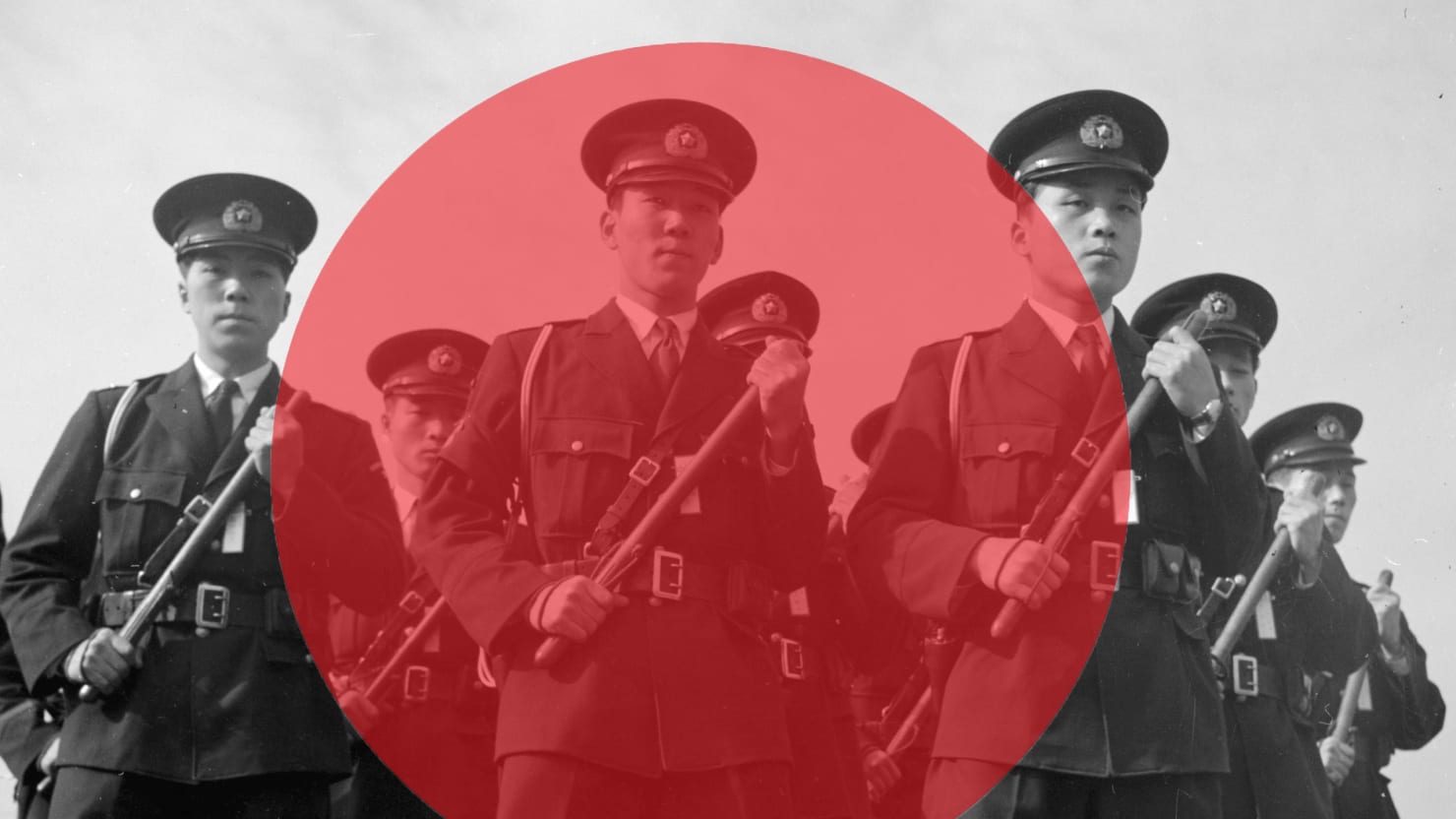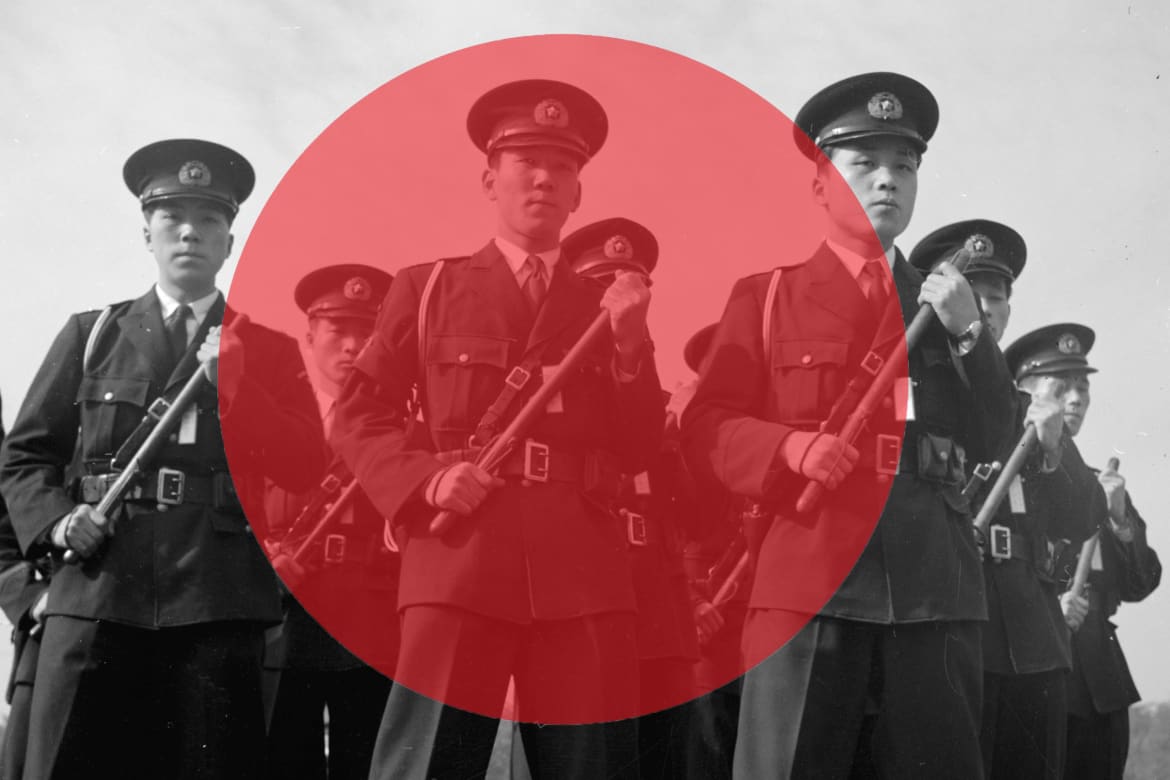Abandon Hope All Ye Tried in Japan
Abandon Hope All Ye Tried in Japan
The 99 percent conviction rate in Japan’s criminal courts is no credit to the efficiency of the system or efforts to reform it.

Jake Adelstein05.29.14 1:00 PM ET

The Daily Beast
Japan’s criminal justice system has a stunning 99 per cent conviction rate (which gives ironic new meaning to the sobriquet “the one percent”), and that could be because it’s just so wonderfully efficient. But, no. Five years after an effort at major reforms began, it’s clear that those stats have less to do with efficient law enforcement than with forced confessions, trumped up charges, professional judges who have no common sense, and gross prosecutorial misconduct.

On May 21, 2009, Japan introduced a modified jury into the courtroom, known as the lay judge system, that was supposed to encourage reform and, according to Japan's Ministry of Justice deepen the citizenry’s understanding of the law.
Well, the verdict is in, and the majority opinion is this: for all practical purposes, Japanese courts operate on the principle of “presumed guilty until proven guilty.”
The good news is that if you actually are lucky enough to get a lay judge trial and be found innocent, you may have a slightly better chance of not being convicted almost automatically when the prosecution appeals.
Double jeopardy? No problem in Japan, where the prosecution not only can appeal a not-guilty verdict, it almost always does.
Under this new system, in cases that might result in the death penalty or other serious crimes that bring severe punishment, six lay judges are chosen from among thousands of eligible candidates of voting age to sit with three professional judges. At least one professional judge must agree with the lay judges and a simple majority is required to determine the verdict.
(For an incomprehensible explanation of the lay judge system, you can also visit this English language page presented by Japan’s Ministry of Justice that will tell you almost nothing about how all this works, but does have nice illustrations).
According to Japan’s Supreme Court, the lay judge system had handed down sentences on 6,396 people as of the end of March 2014, and 34 of the defendants were found not guilty, meaning, precisely, 99.468 percent were convicted.
Defenders of the system say that may not be as bad as it sounds. They point to a recent Supreme Court decision that told prosecutors they could no longer appeal a not-guilty ruling simply because they didn’t like it. “It reinforced the idea that the system is supposed to work as ‘innocent until proven guilty,’” says Hiroshi Shidehara, a defense lawyer, and member of the Japan Federation of Bar Associations Lay Judge System Board. “I think it has made the prosecutors less likely to challenge lay judge decisions.”
“Up to now, in 90 percent of the cases where a defendant has been found not guilty, the prosecution kept appealing until they got their standard guilty verdict,” says Shidehara. To the best of his knowledge, he says, there were only four or five cases in which lay judge not-guilty verdicts had been overturned successfully. “That’s a very low number.”
But that probably comes as little consolation to the 99 percent.
The late great defense lawyer, Makoto Endo, once said this about criminal trials in Japan: “They’re absurdist farces that all end with the same punch line: guilty. The prosecution is good; the judges are their deputies, the accused is a bad guy who is punished. Occasionally, one of the actors flubs his lines so terribly that a not guilty verdict results or a judge engages in a surprise-improvised act of moral conscience that changes the whole ending of the play. These mishaps are rare.”
According to David Johnson, author of The Japanese Way of Justice, the U.S. and England have a criminal conviction rate of 75 to 80 percent.
When Japan had a standard jury system, from 1928 until it was suspended in 1943, the conviction rate was around 82 percent. After the war, the system was never revived and the new system where professional judges determined the verdicts made sure that the wheels of justice were ruthlessly efficient.
One of Japan’s most noted defense attorneys, Hiroyuki Kawai, calls criminal cases in Japan “hostage trials.” He explains that from the time you are arrested, including the 48 hours you may spend in police custody, you can be held for a total of 23 days—and you are not guaranteed the right to see a lawyer. Your lawyer may not be present during interrogation. Your lawyer might also fail to inform you of your only right, which is the right to remain silent.
Meanwhile, suspects routinely are interrogated for eight hours a day or more. It’s a breeding ground for false confessions.
“The system is ‘presumed innocent until proven guilty’ in theory,” says Kawai, “but the accused is routinely denied bail and held in confinement—unless they confess. If they don’t confess, they’re assumed to be in danger of destroying evidence that would convict them, which presumes that they’re guilty in the first place. If they do confess, then later plead innocent, the judge doesn’t believe the confession was coerced—thus they are almost sure to be found guilty.”
He notes that if a lawyer is unable actually to meet with a client, building a criminal defense is next to impossible.
Really, the prosecutors in Japan have all the cards. They do not have to show all the evidence they have to the defense. According to Johnson, there have been several cases in which prosecutors concealed critical evidence that would have exonerated the accused, but such prosecutorial conduct is not considered a crime.
There has been at least one case of a prosecutor tampering with evidence to convict the accused. Another former prosecutor resigned from office, then wrote a book apologizing for browbeating innocent people into making false confessions, noting he had been educated during his training to believe that “yakuza and foreigners have no human rights”. Recently, former boxer Iwao Hakamada was released from prison after spending 45 years on death row, when the court accepted DNA testing results submitted by his lawyers that strongly suggested investigators had fabricated evidence. One of the original judges in the first trial had admitted in 2007 that he believed Hakamada was innocent but was overruled by the two senior judges on the panel, and forced to write the guilty verdict. He resigned as a judge a half year later.
Years ago when this reporter asked a functionary in the Chiba Prosecutor’s office about its refusal to accept evidence that could have potentially exonerated a foreigner accused of drug smuggling--even though the Belgian police wanted them to have it--the response was a look of dumbfound surprise.
“Why would we want new evidence that might weaken our case, when we already have to enough to convict him?” asked the functionary.
This is prosecutorial thinking in Japan: it’s not about justice, it’s about winning and saving face. And sometimes it also results in the guilty going free. An Osaka violent crimes detective said on background, “The prosecution will only take slam dunk cases. Therefore, if the accused doesn’t confess, they’ll drop it.” The case won’t go to trail. “In other words, smart criminals who know the system get off.”
Hiroshi Segi, a former Supreme Court Judge, has written that judges who churn out not-guilty verdicts find themselves side-lined career-wise or sentenced to preside over courts in the far reaches of Japan.
Some criminal defense attorneys have confessed to advising their clients to plead guilty even when they were sure their client was innocent. With only a one percent chance of victory—the odds are not in favor of the accused. To many, Japan’s criminal justice system seems to remain criminally unjust.
Angela Erika Kubo contributed to this report
No comments:
Post a Comment